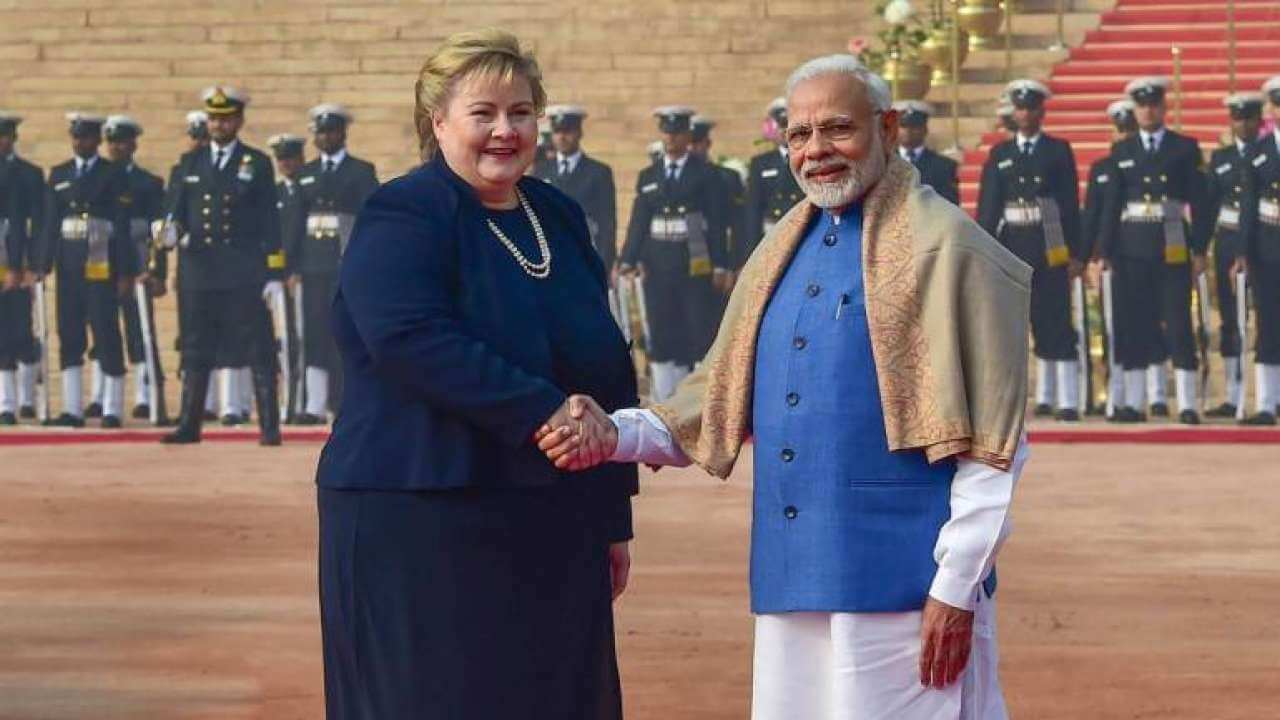On Tuesday, representatives of India and Norway held a virtual discussion. The two sides spoke of their priorities as non-permanent members of the United Nations Security Council (UNSC) between 2021-2022. Both Norway and India were elected as non-permanent members in June 2020. India was chosen as the candidate for the Asia-Pacific region and stood unopposed. On the other hand, Norway, along with Ireland, beat Canada to represent the “Western Europe and Others Group.”
During Tuesday’s meeting, India was represented by Prakash Gupta, the Joint Secretary of the Ministry of External Affairs along with other representatives from the Ministry and the Indian Embassy in Norway. Merete Fjelle, the Director-General of the Department for Multilateral Cooperation, along with other officials from the Norwegian Foreign Ministry represented Norway during bilateral consultations. According to an official statement released by the Indian Ministry of External Affairs, the two sides vowed to bolster their cooperation during this period and work closely as non-permanent members of the UNSC. They also discussed other pertinent issues relating to the UNSC, including the need to reform multilateral organisations, counterterrorism, and the use of Information and Communication Technology (ICT) for peacekeeping efforts of the UN.
On the same day, Piyush Goyal, India’s Railway Minister, hosted a virtual meeting with Guy Parmelin, Switzerland’s Trade Minister. The two ministers discussed the India-Switzerland Bilateral Investment Treaty, which is currently being negotiated by the two countries. Piyush Goyal also called upon Switzerland to extend its support to the proposal presented by India, in collaboration with South Africa, to waive specific provisions of the Trade-Related Aspects of Intellectual Property Rights (TRIPS) to ensure equitable access to COVID-19 vaccine to lesser developed countries. This document was submitted to the World Trade Organisation in October 2020. In the proposal, India and South Africa called for relaxations for medical equipment, including medications and vaccinations, specifically in light of the global pandemic. However, this proposal faced significant backlash from several developed countries (such as Switzerland) who noted that there was no clear evidence to prove that the intellectual property regime was acting as a genuine obstacle to securing equitable access to COVID-19 related medical equipment. While a global health emergency does provide grounds for the relaxation of the TRIPS regime it is unclear if a complete suspension will eventually be accepted due to significant commercial interests of developed countries being at stake.
During the discussion, both sides also expressed their commitment to the India-European Free Trade Association (EFTA) and the Trade and Economic Partnership Agreement (TEPA). According to a statement by the Ministry of Commerce and Industry, both the leaders vowed to take “concrete next steps” to conclude the discussion on the agreement. India has been pushing these negotiations forward in several forums. Just last year, during Norwegian Prime Minister Erna Solberg’s visit to India, a joint statement with India reiterated their commitment to a satisfactory conclusion of the India-EFTA Free Trade Agreement.
India is also looking to secure a Free Trade Agreement with the European Union, which has been a challenging negotiation to conclude. However, due to the importance of the European market, India has held stand-alone summits with Luxembourg, Denmark and Italy to push for economic partnerships at the bilateral level.
India Holds Bilateral Consultations with Norway, Switzerland
Railway Minister Piyush Goyal met with Swiss Trade minister to discuss the India-EFTA Trade and Economic Partnership. Similarly, India also discussed strengthening cooperation with Norway in the UNSC.
December 10, 2020

Norwegian Prime Minister Erna Solberg with Indian counterpart Narendra Modi during her 2019 visit to New Delhi. SOURCE: PTI
